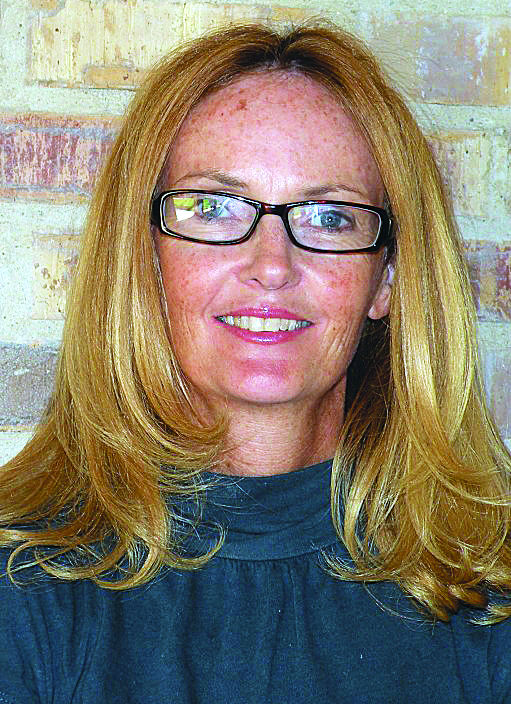Jose and Ana have dreamed of owning a home for years. As their three children become teenagers, their cramped living in a two-bedroom trailer is becoming more difficult.
It’s been challenging to save or qualify for a home on Jose’s income as a maintenance worker at a local hospital. Ana hasn’t been able to find work after several years of staying home to raise her kids. They have had to accumulate some debt to make ends meet, and after their car broke down, they had to take on car payments as well.
Ana shares, “We felt trapped. I was grateful that we owned the land but our trailer is very old and small. We would visit friends or family and my kids would ask us why they all had to share a small bedroom. ‘Why can’t we live in a real house?’ they would ask.”
You can’t really say Jose and Ana are in a financial crisis, because they are making ends meet. But you can say they have a chronic financial illness. They haven’t been able to save or qualify for a loan on a house. And with little savings or assets, they are just one small crisis away from financial disaster.
Fortunately, Jose and Ana found a local non-profit organization that is providing financial wellness coaching and they are on their way to owning their first home. Community Development Corporation of Brownsville (CDCB) through its La Puerta program, is addressing the financial instability epidemic. According to its coordinator, Zoraima Diaz, the program aims to equip and empower families to achieve financial stability, resilience and long-term security through three core program interventions: (1) the provision of knowledge and skills, (2) access to sound financial products and services (3) targeted opportunities to save.”
Long-term financial stability is important to the health and wellbeing of our local residents, and our local economy. The health of a community and an individual is tied, in many cases, directly to the level of financial stability.
Diaz continues, “Financial coaching and financial education workshops are the primary tools that we employ to provide families with the knowledge and skills they need to improve financial behavior and decision making. CDCB’s financial coaches use an interactive approach that engages families to take incremental steps towards reaching their financial goals while taking into consideration the unique financial circumstance of each individual.”
“We went to the first appointment and they ran our credit. Then they met with my husband several times to set up a plan to reduce our car payments and pay off some debt. We started using a budget and spreading out our payments. I make lists and plan what we need to buy. We cut back where we can but really just stay focused on our goal, which is to qualify to own a home. We filed our taxes through the free tax program and used that money to pay down debt and start our savings. We are almost there and couldn’t have done it without the guidance of the program.”
The comprehensive design of CDCB’s La Puerta program allows clients to participate in ‘financial therapy’ through a variety of asset building services simultaneously to achieve financial stability, resilience and long-term prosperity.
Diaz continues, “When a family visits CDCB for an initial financial coaching session the coach performs a ‘triage’ of their households’ financial situation such as their current savings balance in a fashion similar to a nurse taking a patient’s pulse. Then a credit report, similar to lab work in a doctor’s office, will provide detailed information on an individual’s current accounts, credit limits, credit score and collection accounts. If a family decides that homeownership is their primary goal during their initial financial coaching session, they might recommend intensive budget counseling in order to assist the family to reach ‘home buyer ready’ status.”
High cost payday and car title lending is a huge barrier in our area and many of the families served by La Puerta have fallen victim to these types of loans. Because we have so many folks living just at or below poverty, any small setback can throw their families into financial crisis. While some of us may find it easy to come up with $500 to pay for a hospital bill, or put it on a credit card and pay it off fairly quickly, others have no access to this kind of extra cash.
According to Diaz, “Predatory lending represent a loss of financial footing that can snowball into crisis and at the least impede their accumulation of long-term wealth.
The opportunity costs of operating outside the financial mainstream are real, significant and translate into an immediate loss of current assets and leads to chronic financial illness.”
CDCB also provides an array of culturally relevant bilingual financial education workshops that cover a variety of topics
The group setting provides clients with an opportunity for peer to peer learning through the discussion of workshop topics and perhaps more importantly serves as a ‘support group’ to ensure families and individuals that they are not facing the battle of improving their financial lives alone.
“While the family is working on revamping their household budget, the counselor might assist them with identifying an ACA enrollment agency if they are carrying a significant medical debt burden due to a lack of health insurance. Financial health enables family stability, education, and upward mobility, not just for individuals today but across future generations.”
Ana is excited for her family’s future home. “We don’t need a big house, but just a safe, comfortable place with a little more privacy for our three children. I don’t want them to be embarrassed or ashamed of where they live because my husband and I have worked very hard. It’s not always easy, but we are taking every step we are told so we can reach our dream!”
Tu Salud ¡Si Cuenta! Your Health Matters!




